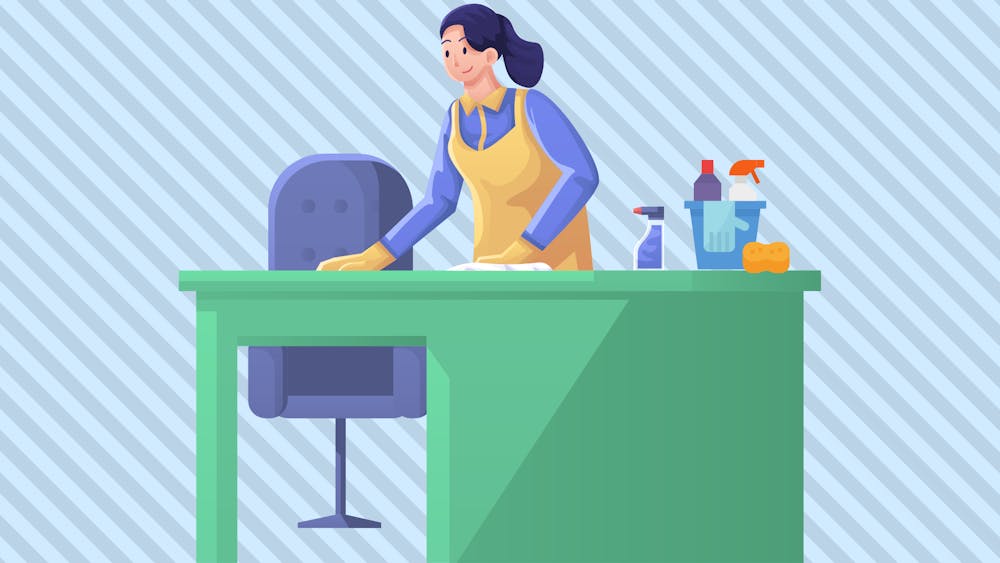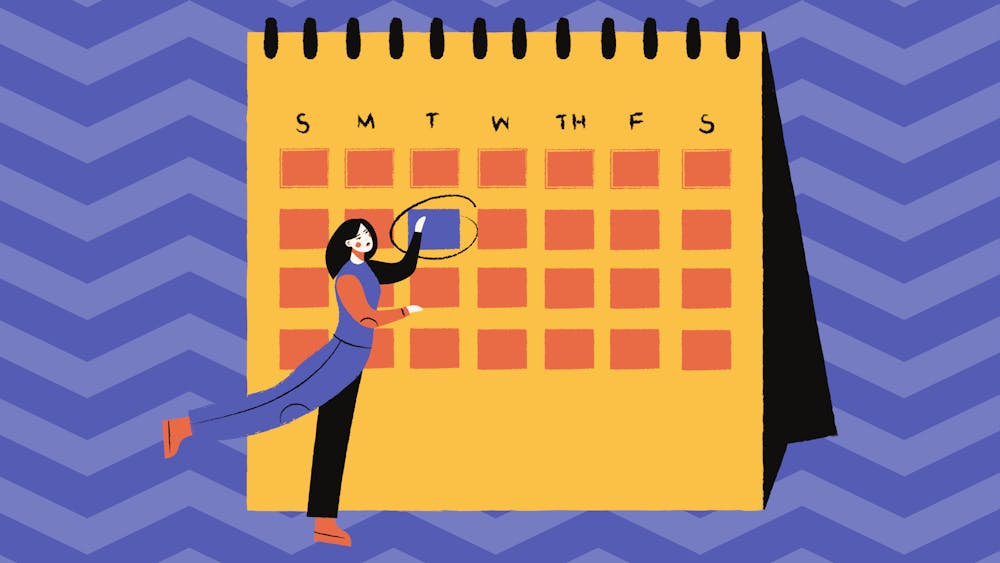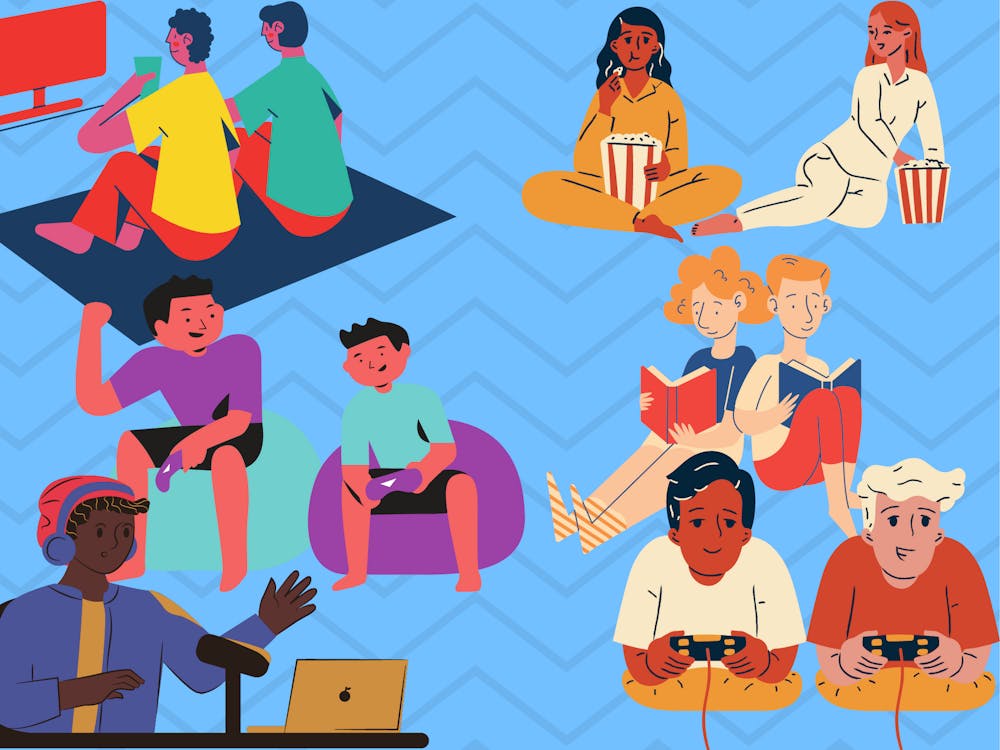It’s the fifth week of spring semester, and students are starting to feel the trudge of homework set in — convincing you it’s been much longer than a month. As paper and presentation due dates are creeping up, it is easy to get overwhelmed and feel the brutal effects of academic burnout.
Academic burnout can be defined as a negative emotional, physical and mental reaction from overworking yourself on school-related activities. This semester has proven to be more difficult as students have had to recreate new routines after already sitting through two weeks’ worth of classes online.
Here are some tips to help get your motivation back:
Focus on yourself (no really)
Sometimes, academic burnout can kick up if you’ve been grinding homework in order to go out with your friends on the weekends. But is making that hangout really worth your time?
Don’t get me wrong, I’m not saying avoid your friends, but every now and then, schedule some time to be with yourself and allow your social battery to recharge.
The media represents college as the “best four years of your life” and puts high pressure on making social connections and making every moment a memorable one — which makes it hard to know when to say no.

When you feel overwhelmed, it is important to stay in the present and focus on your own well being.
Canva by Brennan Crowder
Try to set social boundaries for yourself. Recognize when you don’t have any energy left after a full week of classes. Don’t stretch yourself too thin by trying to stay up late with the rest of your friends over the weekend. Rest is important too.
Choosing to stay in can mean finishing that painting you started before school got crazy or picking up the guitar you haven’t touched since winter break, but don’t forget to do things that will help you feel better prepared for the upcoming week.
If you feel like you haven’t been able to eat right because you don’t have enough time in the day to make something that’s not Annie’s mac and cheese, try to meal prep for the week on Saturday or Sunday. Not only will you be putting in time for yourself but you will also start to get in the habit of paying attention to your health and what foods give you the most energy while only taking a limited amount of energy to make.
Managing simple and basic needs like cooking or cleaning while taking on a full class load can be difficult, but shouldn’t be ignored. Self-care is an everyday act and not just a once-in-a-blue-moon treat. By taking some time and re-evaluating how you spend your time, you can start to build a routine that fits your lifestyle the best.
When deciding to stay in, your friends shouldn’t make you feel bad for putting yourself first, getting work done or catching up on some rest. While the fear of missing out (FOMO) might creep in, there are three days out of the weekend that can be just as memorable as the next so if you choose to stay in on Friday, make the most of your Saturday.
With that being said, if you choose to go out, stay in the present. Lock away all thoughts about homework until your day of fun is over. If you are constantly putting yourself in a stressed mindset, you’ll end up burning yourself out even more.
Thinking about all the assignments you have to do while you’re in line for Voodoo Doughnuts won’t get them done any faster. Treat yourself to a bacon maple bar or The Homer and let the sugary satisfaction melt your worries away.
Reorganize your life
Look around your room. With some classes remaining online and Omicron still surging through Portland, it’s most likely that you’ve been doing most of your work in your living space. If it’s cluttered, it can be hard to focus on tasks at hand while your eye is being constantly drawn to the laundry that’s piling up in the corner of your bedroom.
Think about your personal space, do you like spending time in your room? If not, what can you change about it that will make it feel more like home?

If your space is cluttered, it can be hard to focus on tasks at hand.
Canva by Brennan Crowder
Things even as small as making your bed in the morning, rearranging some furniture in your room, or switching up your decorations can help make your room feel less stale after spending a majority of your time there.
While changing up your room can help, consider taking a closer look at your desk. There are many benefits in having an organized and clean workspace including improvements in time management, remembering important tasks and completing daily goals.
Having an organized workspace doesn’t only mean cleaning up your desk, but can also mean cleaning up your desktop. Is there a better way to organize your virtual space so it’s less distracting?
As online classes began, students had to figure out new study tips that made work easily accessible which often means converting to taking notes on your computer and having all of your assignments in an online form.
If you are still trying to find ways to keep everything organized electronically, try organizing your desktop files in a way that makes sense for you or using the online planner Notion to keep track of what’s going on in your life. There are also plenty of college YouTuber’s that give great advice for note-taking and all things academia-related like John Fish, Elliot Choy, Sienna Santer, Hannah Elise and so many others.
Stay in the Present
When looking at your planner it can start to feel overwhelming with all the due dates for assignments, essays and projects staring back at you and making you feel defeated before you even start.

When feeling overwhelmed, working on assignments one at a time and taking things dat by day is a very effective strategy.
Canva by Brennan Crowder
While doing smaller assignments, give them your full attention. That goes for any time you are doing work. If you are constantly multi-tasking, a 15-minute reading turns into 30, 30 into an hour and so on. You’ll look back at your time wishing you would have just gotten it done and over with.
Getting started and finding the motivation to keep working can be the hardest part of getting over academic burnout but is an essential first step to clearing those anxieties.
If you’re having trouble figuring out where to begin, prioritize what needs to get done first. It can be based on due dates or simply what is taking up the most space in your mind.
Try starting out small and working your way up the assignment totem pole while keeping track of what you get done. It can be motivating to see things on a to-do list start to chip away.
Brie Haro is the Community Engagement Editor for The Beacon and can be reached at haro23@up.edu.








